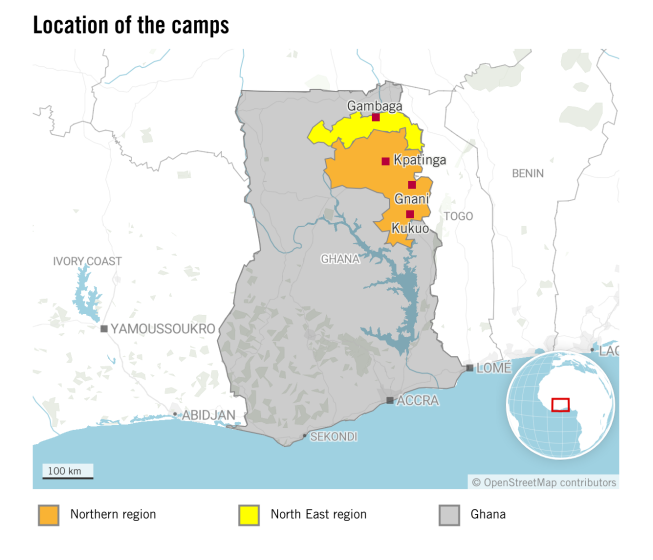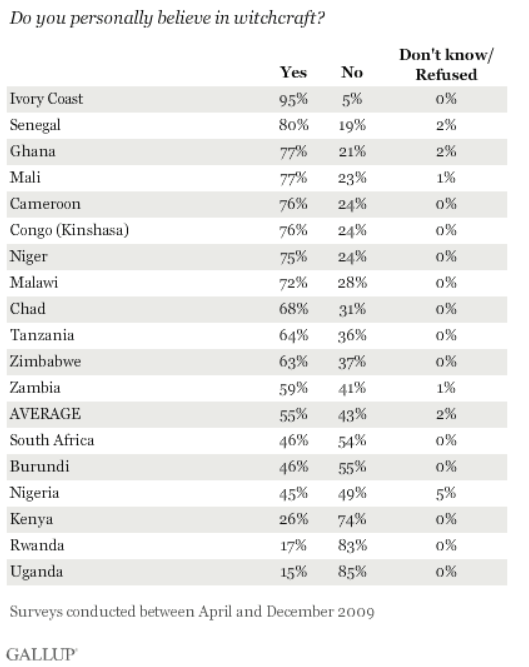Fact Sheet: The Dilemma of Witchcraft Accusations in Africa
Pointing finger
By Eward Francis Dalliah
Witchcraft accusations remain a pervasive issue across Africa, often resulting in serious human rights violations, including violence, social exclusion, and, in extreme cases, death. These accusations disproportionately affect vulnerable groups such as women, children, the elderly, and persons with disabilities. In the Gambia, a particularly disturbing incident occurred in 2009 when nearly 1,000 individuals were detained and forced to confess to witchcraft under duress.
Widespread but Underreported
Witchcraft accusations continue to persist across the continent. A recent Amnesty International report titled “Branded for Life” highlights how such accusations have led to human rights violations against hundreds of women in northern Ghana. Many have been driven from their homes and forced to live in so-called “witch camps”, typically located on land privately owned by traditional priests, where rituals are performed within isolated communities.
The report states: ‘Witchcraft is a system of beliefs in various communities worldwide. While belief in witchcraft is protected under the right to freedom of thought, abuses stemming from that belief are not. But human rights violations related to witchcraft accusations occur globally in various forms.’
In 2023, the United Nations General Assembly received a study from the Office of the High Commissioner for Human Rights addressing violations and abuses linked to witchcraft accusations, ritual attacks, and associated stigmatisation.
Issuing a document on it, the international body noted that “in [the High Commissioner for Human Rights] resolution 47/8, the Human Rights Council expressed concern that harmful practices related to accusations of witchcraft and ritual attacks had resulted in various forms of violence, including killings, mutilation, burning, coercion in trafficking of persons, torture and other cruel, inhuman or degrading treatment and stigmatization, particularly for persons in vulnerable situations, including women, children, persons with disabilities, older persons and persons with albinism. These forms of violence were often committed with impunity.”
The document further stated that “the Council requested the United Nations High Commissioner for Human Rights to organize an expert consultation with States and other relevant stakeholders to help her Office prepare a study on the situation of the violations and abuses of human rights rooted in harmful practices related to accusations of witchcraft and ritual attacks, as well as stigmatization, and to inform further action by existing mechanisms at the United Nations.”
Though global data is scarce, it is widely believed that the number of victims of witchcraft accusations is significantly underreported. At a minimum, thousands of people are accused of witchcraft each year, often with fatal consequences. Many are mutilated or killed in connection with witchcraft-related rituals.
A 2010 Gallup News article, “Witchcraft Believers in Sub-Saharan Africa Rate Lives Worse,” reported that: “Belief in witchcraft is widespread throughout sub-Saharan Africa, according to recent Gallup surveys, and potentially affects how those who believe see their lives. Studies in 18 countries show belief varies, but on average, 55% of residents personally believe in witchcraft.” As of 2025, the actual number of individuals who faced this accusation remains a challenge.
According to Amnesty International’s visits to Ghana in November 2023 and April 2024, more than 500 people were found living in “witch camps”. One woman shared her experience: “He doesn’t want me [in the community]; that’s why he accused me.” A resident of Kukuo camp added, “They always have plans of putting allegations against you, especially if you are hard-working and are still strong and doing well as a woman.”
In another disturbing account, a woman recounted, “My neighbour said he dreamt [...] that I was trying to kill him. He doesn’t want me [in the community]; that’s why he accused me.” She continued, “I refused for the [village] chief to marry any of my daughters. One day, a child got sick in the community, and the chief accused me.” Many of these accusations stem from cultural beliefs attributing misfortunes to supernatural causes.
Victims across Africa are sometimes given substances to drink that induce confessions, which are then used to condemn them by their communities.
The Gambia: A Case Study
In The Gambia, belief in witchcraft is deeply rooted and has been passed down through generations. While such beliefs historically manifested as social stigma and informal accusations, the situation escalated dangerously under former President Yahya Jammeh’s regime.
According to findings by the Truth, Reconciliation and Reparations Commission (TRRC), in 2008, President Jammeh believed that his aunt had died as a result of witchcraft. This belief led him to order the arrest of suspected witches and wizards, who were then taken to various locations in his hometown of Kanilai. There, they were detained, ill-treated, tortured, and subjected to sexual violence.
In March 2009, a mass arrest operation resulted in the detention of about 1,000 individuals accused of witchcraft. According to the TRRC, detainees were forced to drink unidentified substances and coerced into confessing. Many endured brutal beatings, and one man, Ceesay Bujiling, was killed because the president believed he intended to use witchcraft to gain power among witches and wizards in the Foni region.
More recently, a viral video from Basse Kabakama surfaced, showing an elderly woman being publicly accused of witchcraft. The footage sparked national outcry, rekindling traumatic memories for victims of the former regime’s witch hunts and confirming that such beliefs and practices still exist in Gambian society today.
During a victim gathering organised by the Women’s Association for Women and Victims’ Empowerment (WAVE) on 23rd May 2025, a victim from Basse spoke publicly to refute claims she and others were witches. The event aimed at addressing witchcraft accusations was part of a series of events organised by WAVE.
The magistrate of Basse, Peter Che, who also attended the event, shed light on how the case was handled. He noted that rather than using legal means, the authorities opted for dialogue to resolve the matter since such accusations are “not recognised under the laws of the country”. Magistrate Che encouraged citizens to embrace dialogue and “refrain from making unfounded accusations”, adding that “most of these accusations stem from mental stress and frustrations people experience when faced with difficult situations.”
Regional and International Responses
There is currently no global legal framework specifically criminalising witchcraft accusations. In Ghana, for example, Parliament passed the Anti-Witchcraft Bill in 2023, but the President declined to sign it into law, halting its implementation.
On a broader level, the Pan-African Parliament (PAP) in 2023 introduced guidelines aimed at combating harmful practices, including witchcraft accusations. These include legal reforms and educational campaigns to challenge entrenched beliefs. Amnesty International continues to advocate for specific legislation that criminalises witchcraft accusations and protects victims. The organisation underscores the urgent need for comprehensive national awareness efforts to address the issue at its roots.
Conclusion
Witchcraft accusations in Africa, including in The Gambia, continue to pose a significant threat to human rights. Tackling this issue requires a multi-dimensional response, combining legal reform, public education, victim support services, and community engagement. Without these interventions, thousands remain at risk of violence, exclusion, and death based on deeply ingrained beliefs and unchecked accusations.



